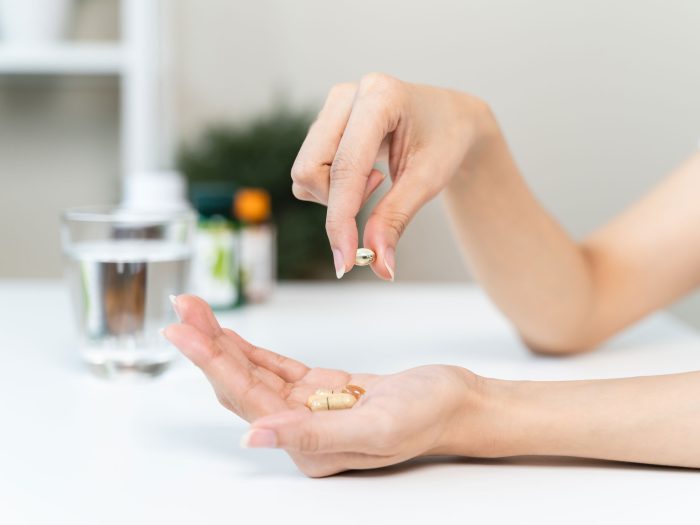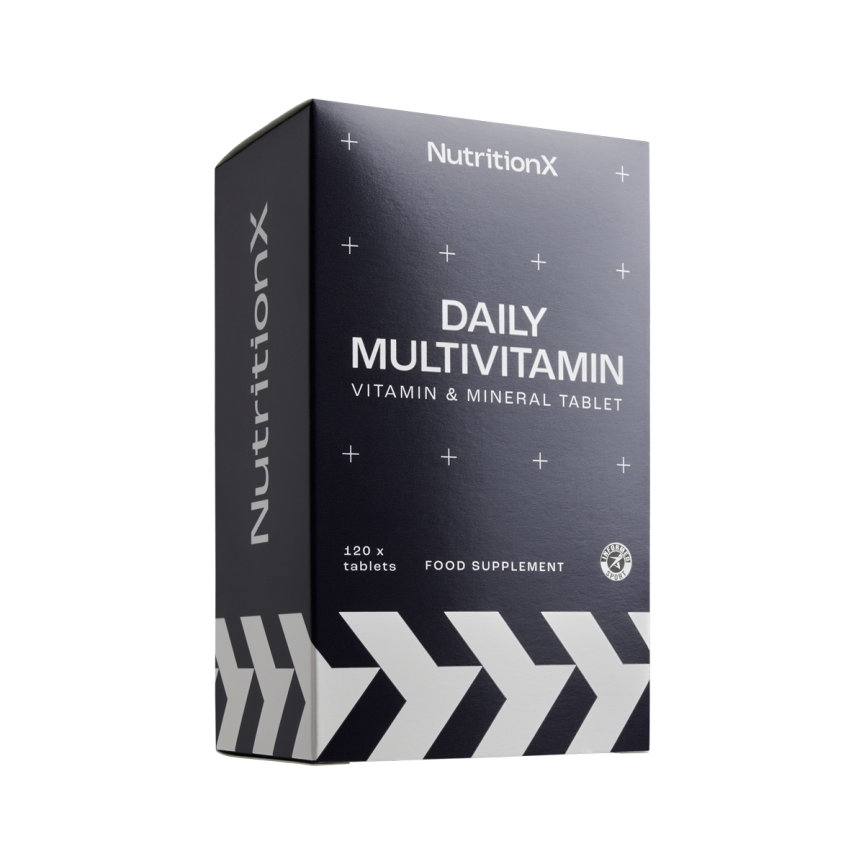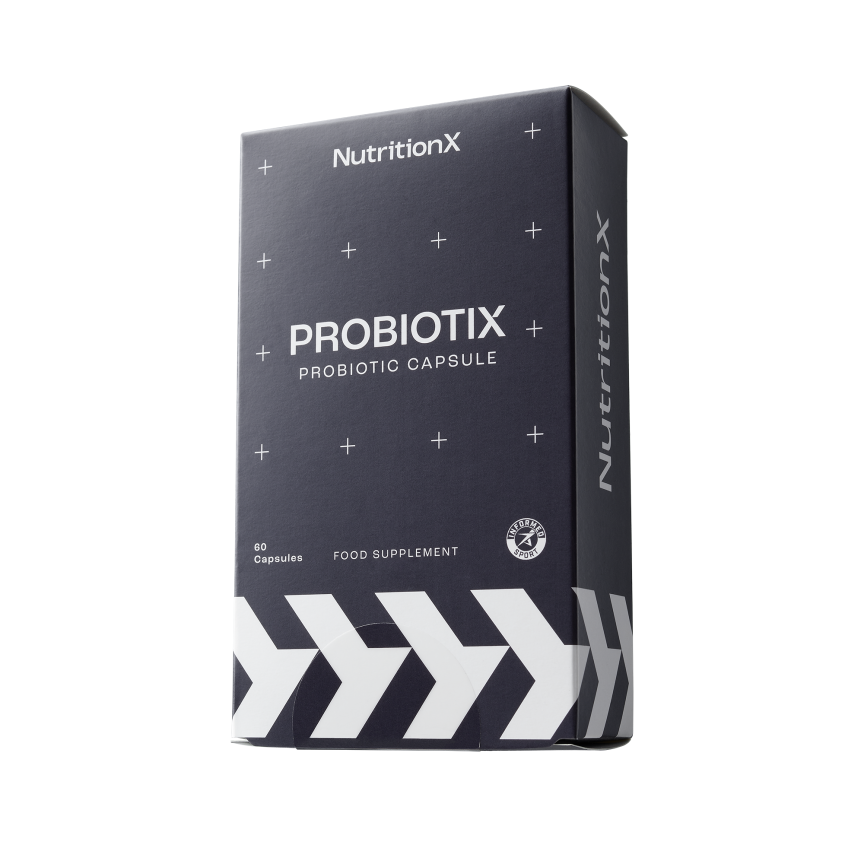Vitamins play a vital role in safeguarding athletes of all ages against potential performance-limiting deficiencies, particularly during the winter months when seasonal illnesses are at their peak and Vitamin D levels are low. But which vitamins should you take during the winter months? Here, we explore the importance of taking vitamins to support immune health and overall wellbeing during winter, looking at which vitamins come into play when the colder weather sets in.
What vitamins should I take in winter?
Vitamin D, Vitamin C and Multivitamins can prove invaluable in helping to protect your immune system and overall health and wellbeing during the winter months. Taking a daily probiotic containing specific strains of gut-friendly bacteria can also help to support digestive system function; important at all times of the year thanks to the gut’s role in supporting overall health and wellbeing. Probiotics also help to reduce the chances of performance-limiting gut issues, such as bloating and stomach cramps, during training.
Why is taking Vitamin D important in winter?

Winter months in the UK bring shorter, darker days, meaning exposure to sunlight – a key factor in enabling the body to produce its own Vitamin D – is limited. As a result, between October - March in the UK there is not UVB from sunlight to naturally synthesise Vitamin D in the body. Vitamin D deficiencies, caused as a result of not getting enough exposure, can have an impact on your bone and muscle health, as well as your immune system. Vitamin D plays an important role in bone health and maintenance, as well as impairing muscle recovery and increasing your chances of contracting an Upper Respiratory Tract infection.
Find out why Vitamin D is important for athletes.
How can I increase my Vitamin D during winter?
Taking a Vitamin D supplement of a 2000IU dose like the Daily Vitamin D3 Tablets can help to prevent Vitamin D deficiencies caused by the lack of exposure to sunlight during winter, in turn reducing the chances of contracting an Upper Respiratory Tract infection which can negatively impact sporting performance. In the UK, it is recommended to supplement Vitamin D between October and March, when sunlight hours are at their most limited.
What foods contain Vitamin D?
Although there are foods that contain Vitamin D, such as salmon, mackerel, eggs and fortified cereals, it's unlikely that you will be able to consume enough Vitamin D from your diet alone, therefore there’s a possibility of becoming deficient over the winter months. A 2000IU dose Vitamin D supplement per day has been shown to rectify / avoid a Vitamin D deficiency without any risk of toxicity. This dose is also within the recommended safe upper limit.
What foods should I eat during winter months?
Consuming a wide variety of different foods is important to maximise micronutrient intake, particularly during the winter months for optimal immune system support. The winter usually means dark evenings and colder temperatures, and this transition in weather is often associated with an increased risk of respiratory tract infections, e.g., catching a cold. Consuming adequate amounts of micronutrients is essential to help minimise the risk of respiratory tract infections. Increasing fruit and veg intake by ‘consuming the rainbow’ (one piece of fruit or veg from every colour of the rainbow) can help to increase micronutrient intake.
Vitamin C
What does Vitamin C do in the body?
Vitamin C plays a crucial role in supporting and maintaining immune system function. This is important during times of illness, when concentrations of Vitamin C that are naturally found in white blood cells can drop. Increasing Vitamin C intake may not stop the likelihood of catching a cold or flu, but it may reduce the duration of the illness. You should be able to get all the Vitamin C you need by eating a varied and balanced diet, but can also take a Vitamin C supplement of 1,000mg (or less) per day.
How often should you take Vitamin C?
Vitamin C cannot be stored in the body, so you need it in your diet every day. A daily supplement will also help to ensure you’re getting adequate amounts daily.
Find out more about Vitamin C for athletes here.
What do multivitamins do?
A multivitamin supplement may be useful to take each day to act like an insurance policy; not necessarily essential, but it will give you piece of mind by helping to keep micronutrient deficiencies at bay. Typically, a multivitamin contains 100% of the NRV (Nutrient Reference Value) of key vitamins and minerals, helping you to meet your micronutrient requirements alongside your food intake. Multivitamins like the Complete Daily Multivitamin are therefore a good idea to take at all times of year, not just during the winter months.
Do multivitamins work?
The multivitamin provides 100% NRV of a wide range of key vitamins and minerals to help keep any potential deficiencies at bay. In this respect, they work to best protect you against any potential nutrient deficiencies when taken daily.
Probiotics
What do probiotics do?
Whilst a probiotic isn’t a vitamin, it’s important to promote ‘good’ or ‘friendly’ bacteria throughout the winter months to support gut function, which may help to reduce the likelihood of illness. Probiotics help to balance the bacteria in your gut by promoting the growth of friendly bacteria, which helps your body to fight pathogens and help to defend against upper respiratory tract infections. Consuming gut-friendly foods may help to reduce the number, severity and duration of infections of this kind, too. Look for fermented foods such as kimchi, kefir and sauerkraut, or those containing live bacteria like live yoghurt.
Find out how Probiotics can help athlete performance here.
Which vitamins help athletic performance?
All vitamins and minerals play incredibly important roles in our overall physical health and wellbeing, particularly when it comes to reducing the chance of performance-limiting nutrient deficiencies. Both play a key role in body functions including energy metabolism, bone formation, immune function, hormones and much more; all of which are key to keeping your sporting performance at its peak.
References
Mäkinen, T. M., Juvonen, R., Jokelainen, J., Harju, T. H., Peitso, A., Bloigu, A., ... & Hassi, J. (2009). Cold temperature and low humidity are associated with increased occurrence of respiratory tract infections. Respiratory medicine, 103(3), 456-462.











